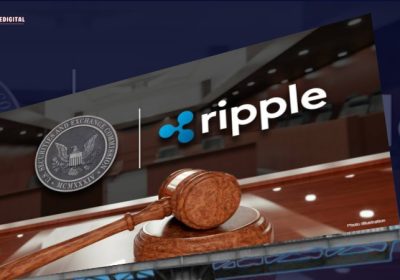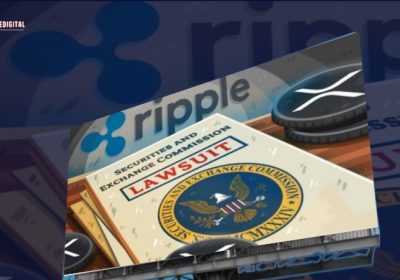Ripple vs SEC: New Allegations Rocks the Ongoing Legal Battle

The ongoing legal battle between Ripple and the SEC has been full of unexpected developments. Ripple asserts that the SEC is attempting to exert control over the crypto industry with ambiguous regulations, while the SEC retaliates with what Ripple views as manipulative tactics and unfair practices. Ripple’s Chief Legal Officer, Stuart Alderoty, has publicly criticized the SEC’s handling of the XRP case, citing unfair practices and broader challenges for the crypto industry.
Read Also: USTC Nears Full Backing by LFG Assets, Highlighting Stablecoin’s Peg Strength
Allegation Unlawful Conduct
After a protracted legal struggle with the SEC, Alderoty drew parallels between the SEC’s actions and the absurdities depicted in Franz Kafka’s novel “The Trial,” accusing the regulator of engaging in unlawful activities. Ripple argues that the SEC’s approach lacks transparency and fairness, reflecting broader issues faced by other cryptocurrency firms such as Robinhood and Coinbase.
Overview of Legal Strategies for Ripple
Ripple has taken measures to safeguard its interests by filing motions to seal sensitive financial documents from public disclosure. These documents contain crucial details about earnings, revenues, expenses, and the discounted rates at which XRP was sold to institutional investors. Ripple contends that revealing such information would harm its business interests and compromise privacy.
A pivotal aspect of the case is the SEC’s request for $2 billion in penalties from Ripple for allegedly selling XRP to institutional investors. However, Ripple’s legal team insists that any civil penalty should be limited to $10 million, arguing that the SEC’s demand is unwarranted. They also maintain that since there has been no loss to customers, Ripple should not be compelled to pay this substantial sum through unjust means.
Regulatory Concerns: What You Need to Know
Alderoty’s critique underscores the broader tensions between regulatory enforcement and business operations within the cryptocurrency industry. Ripple and other crypto firms have encountered what they describe as inconsistent feedback from the SEC, complicating their efforts to comply with regulatory requirements.
Legislative Response
Ripple’s legal battle has also shed light on efforts within the U.S. government to restrict the SEC’s regulatory authority. Alderoty has commended bipartisan initiatives in the House of Representatives aimed at limiting the SEC’s influence over cryptocurrency regulation. Notably, the House recently voted to overturn the SEC’s Staff Accounting Bulletin No. 121, which requires financial institutions to include customers’ cryptocurrency holdings on their balance sheets.
Exploring the Implications of the Crypto Industry
The outcome of Ripple’s case against the SEC holds significant implications for the broader cryptocurrency industry. Notably, the SEC’s scrutiny of Ripple’s future stablecoins underscores their intentions. The resolution of this case could establish precedents for the regulation of digital assets.
Read Also: Ripple CEO Publicly Declares XRP and Certain Altcoins as Non-Securities!
Alderoty’s allegations against the SEC hold substantial importance. The SEC’s success could have adverse effects on the crypto market, as labeling XRP as a security could impact other assets awaiting similar regulatory decisions.
Follow us on Twitter, Facebook, Telegram, and Google News.

Kayode Michael is a seasoned cryptocurrency analyst, successful trader, and skilled writer with a strong command of cryptocurrency analysis and price action. He leverages his technical analysis skills to provide valuable insights into emerging market trends and potential opportunities for investors to make informed decisions.










